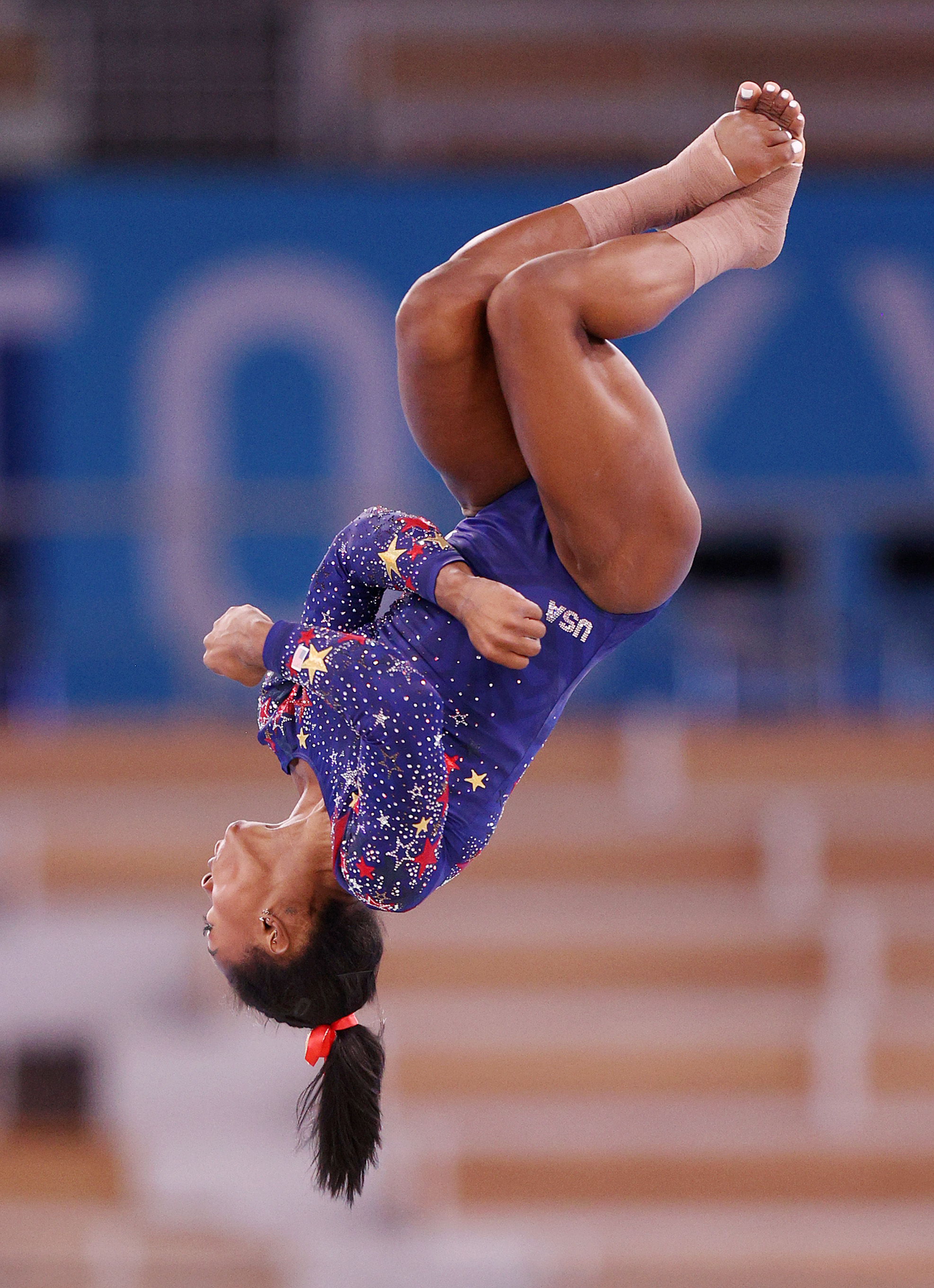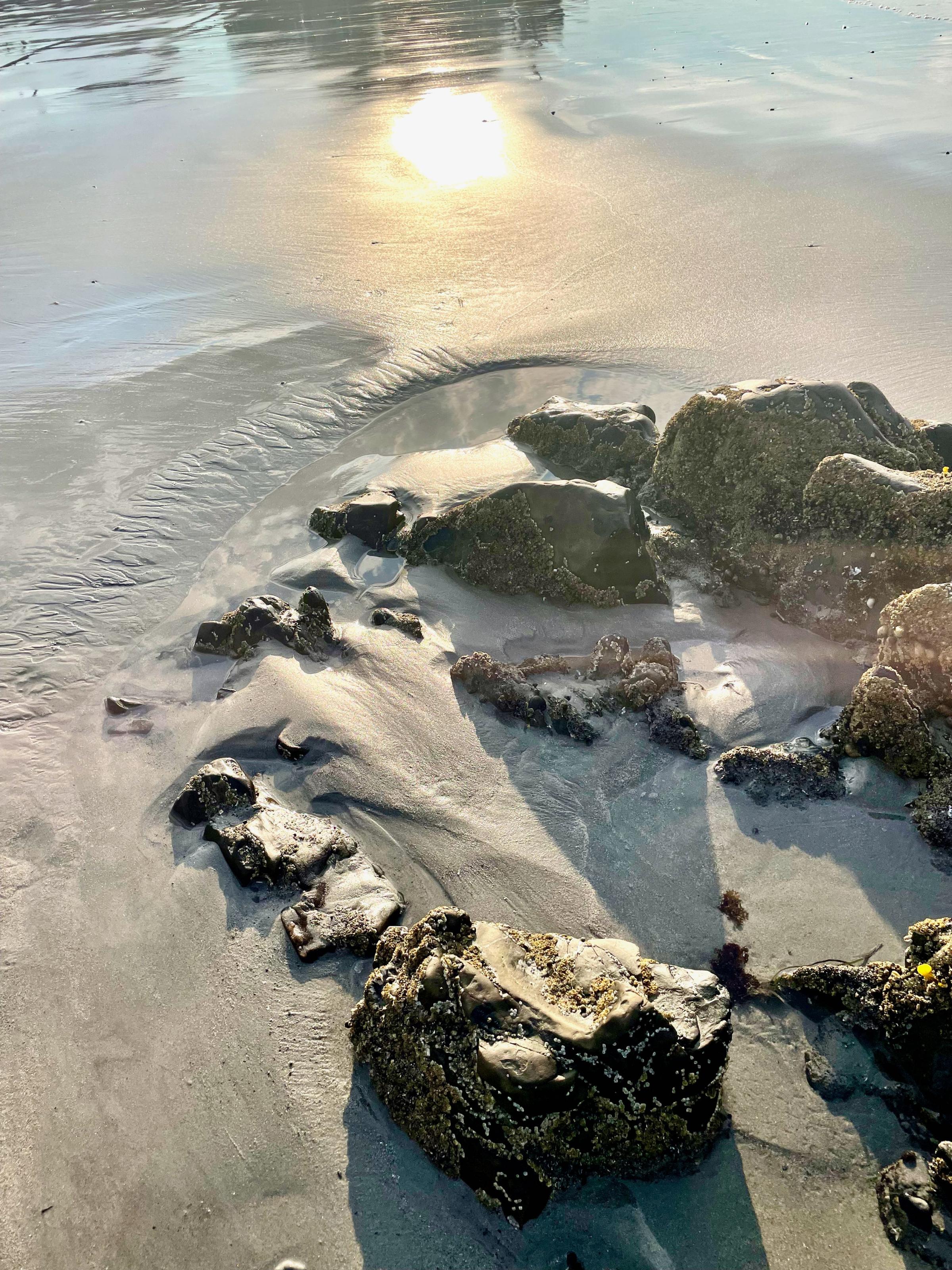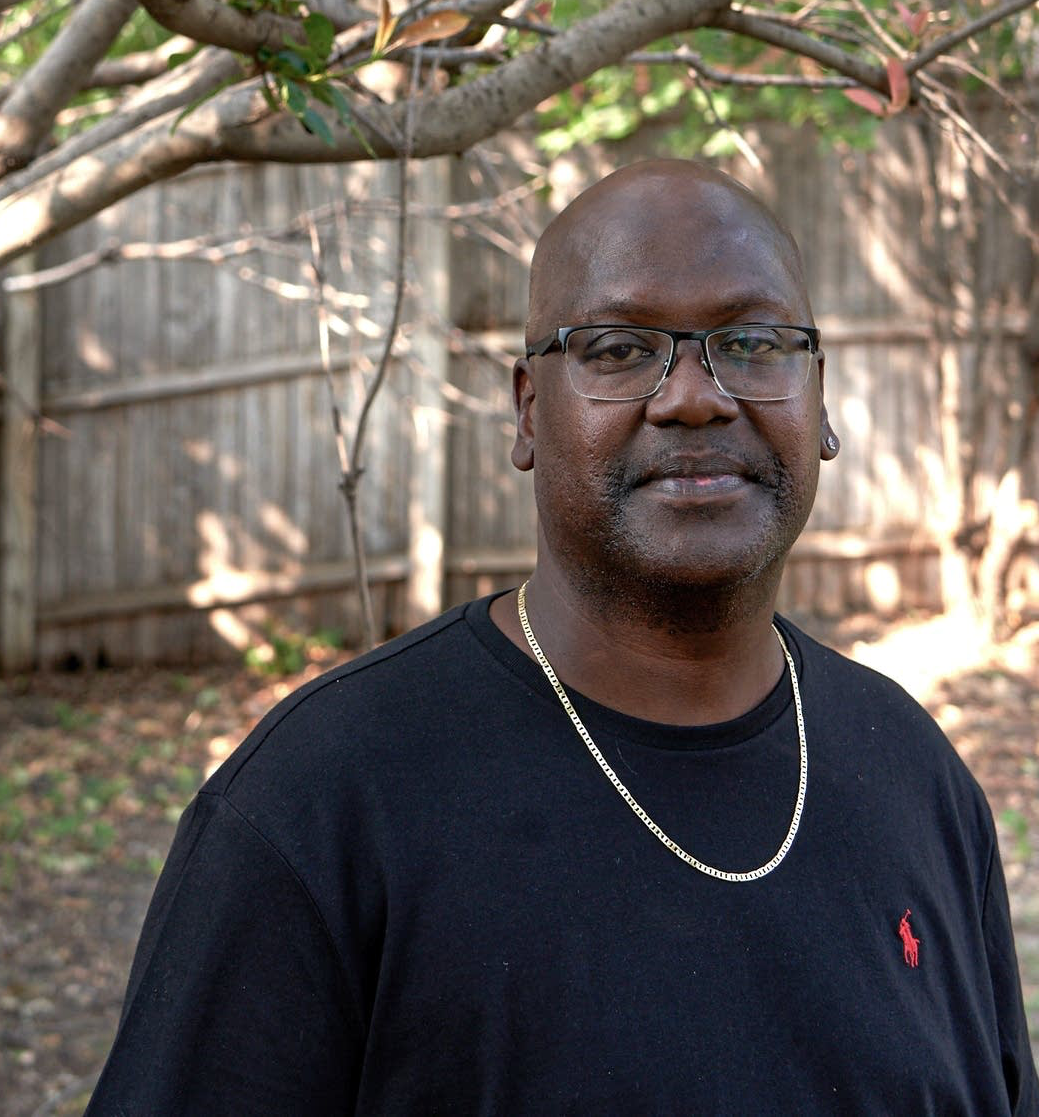
Well hello! I’m so glad you’re here. A version of this article also appeared in the It’s Not Just You newsletter. Sign up to get a new edition every Saturday.
The supernova that is gymnast Simone Biles has been explaining a phenomenon called “the twisties” for we who are more earthbound creatures. It’s “not having your mind and body in sync,” she says. Not great for most people, but if you’re upsidedown and six or eight feet above the ground, that disconnection can be deadly.
On July 30th, days after upending a truckload of other people’s expectations by pulling out of her the American team’s all-around final at the Tokyo Olympics in order to focus on her mental health, she posted videos on Instagram revealing that she still can’t shake the twisties and she “literally can not tell up from down.”
That’s when the twisties started to sound familiar to me. Because the insidious thing about that loss of control and perspective is that once it happens, you can’t forget it. So fearing a recurrence of the twisties can perpetuate the problem. As others have put it so well: instinct is replaced by thought and thought leads to worry.
When Biles spoke about righting her emotional gyroscope as well as her corporeal gyroscope, it hit deep for so many of us. Sure, we’re not a young woman trying to fly while carrying the immeasurable weight of a million kinds of hope on her young shoulders. Some of us are just writing emails, showing up the best we can for the people that matter, and hoping to somehow hang on to our jobs and our sanity. But there’s something universally resonant about her struggle to regain her balance.
Subscribe here to get an inspiring essay every Saturday
This week, Biles, a four-time gold medalist recognized as the best there ever was, shared videos of inept landings on the soft foam of a practice mat and talked about losing the joy she once had practicing this craft, how she didn’t want to keep doing these herculean feats for other people. “We have to protect our mind and our body rather than just go out there and do what the world wants us to do,” she told reporters in Tokyo.
You could hear a little of that tone in TIME’s recent cover story about the push to get employers to treat employees with empathy, and to recognize and accommodate the effects of this brutal year on our mental and physical health. Most of us have the blessing to wrangle our grief and insecurity out of the public eye, unlike Biles who’s dealt with it all in front of us while staying airborne. Nonetheless, she’s had the courage to not only speak up for herself but also for other gymnasts, particularly Black teammates. But it had to take a toll. She tweeted, “numb is becoming a normal feeling,” following revelations that USA Gymnastics had concealed former team doctor Larry Nassar’s horrific generations-long abuse of young gymnasts, including Biles herself.
And it’s true that we can’t imagine what it’s like to have her staggering skills, and her mind and body strength, but we felt what Biles meant when she tweeted that she doubts her worth beyond her accomplishments, writing: “The outpouring love & support I’ve received has made me realize I’m more than my accomplishments and gymnastics which I never truly believed before.”
At first, we wondered how could that be? How could someone with so many unmatched talents, fans and friends as well as a profoundly generous spirit feel that way? But looking inside ourselves we know exactly how it could be. It is a very American affliction to so entwine your identity with your work that a stumble in the former feels like an earthquake for the other. And so perhaps her greatest gift to us is a reminder that the most important part of us is who we care about and who cares for us, not what we do, what we win, or how much we accrue.
Subscribe here to get an inspiring essay every Saturday
GALLERY 📷
A few images of the week that was. Follow me on Instagram @susannaSchrobs for more photos.

An otherworldly morning at Gooch’s Beach, Maine.

This looks like an aerial shot of giant coastal outcroppings, but it’s a tiny world at your feet.

Subscribe to the It’s Not Just You newsletter and get a fresh edition every Saturday.
THE ROUND-UP 🌟 (New!)
🗞️”You are literally judged on how close to perfection you come. Your identity comes to be built around it. But what happens when an athlete realizes they are human? That they are inherently imperfect?” a former UCLA gymnast on Simone Biles’ decision to pull out of the Olympics gymnastics team final.
🎙️ Interdependence vs. Independence: Freakonomics examines “The Pros and Cons of America’s (Extreme) Individualism.”
🗞️ Evolutionary biologists investigate the Delta virus variant’s dominance.
🗞️The Great Return: With the Delta variant ascendant, we’re not sure when everyone will be back in the office or which rescheduled life plans we might have to reschedule. Meanwhile, some Black women who were relieved to work from home, free from microaggressions, consider new options.
📚 Beyond Bridgerton: Retelling whitewashed stories of Britain’s first Black aristocrats and Dangerous Freedom, Trinidadian author Lawrence Scott’s new novel about a real-life 18th-century figure, Elizabeth Dido Belle.
📚 Nora Ephron’s rules for middle-age happiness: “Gather friends and feed them, laugh in the face of calamity, and cut out all the things––people, jobs, body parts––that no longer serve you,” from a new memoir by Deborah Copaken.
📺 A Most Perfect Distraction: Nancy Mitford’s scandal-laden semi-autobiographical novel “The Pursuit of Love” has been adapted for TV and is now streaming near you.
📚 Here are the 11 new books you should read in August.
EVIDENCE OF HUMAN KINDNESS❤️
Here’s a reminder that creating a community of generosity elevates us all.

In partnership with the Innocence Project and other organizations which help exonerate wrongfully imprisoned individuals, Pandemic of Love recently connected with Curtis Flowers, a Mississippi man who endured nearly 23 years behind bars, six trials, four death sentences, and subsequently, months of house arrest for murders he’s always maintained he didn’t commit.
Curtis’ story got national attention in 2018 after an investigation by APM Reports’ podcast In the Dark revealed deep flaws in the evidence against him. His first three convictions for this crime were overturned by the Mississippi Supreme Court for prosecutorial misconduct, two trials ended in hung juries, and in June of 2019, the final conviction was overturned by the U.S. Supreme Court. He was released in December of 2019 while awaiting an unprecedented seventh trial for which charges have since been dismissed.
To help Curtis get back on his feet and purchase the tools he needs to generate an income as a carpenter and handyman, more than 100 generous Pandemic of Love donors contributed over $4,000 to his rent fund and so he could purchase a pressure washer, generator, and paint sprayer among other essentials.
Curtis, who’s also a gospel singer, was floored by the outpouring of love and goodwill. “I’ve been struggling out here, trying to make a life for myself and my family,” he wrote to the volunteers at POL. Adding:
“It warms my heart to know that there’s so many good people out there that care about what I’m going through and thank you all. I love you all.”
Story and images courtesy of Shelly Tygielski, founder of Pandemic of Love, a grassroots organization that matches volunteers, donors, and those in need.
COMFORT CREATURES 🐕
Our regular acknowledgment of the animals that help us make it through the storm.
Meet the pack: Three rescued beagles (left to right: Luna, Fred, Hammy) and in the foreground, Oshie who is a mixed breed rescue. Image submitted by Jenn who notes that the joyful human member of this family pack is her daughter Ava.

Send your images to me at Susanna@Time.com, and visit me on Instagram @susannaSchrobs for more.
And, if someone forwarded this edition of It’s Not You, consider subscribing here.
More Must-Reads From TIME
- The 100 Most Influential People of 2024
- The Revolution of Yulia Navalnaya
- 6 Compliments That Land Every Time
- What's the Deal With the Bitcoin Halving?
- If You're Dating Right Now , You're Brave: Column
- The AI That Could Heal a Divided Internet
- Fallout Is a Brilliant Model for the Future of Video Game Adaptations
- Want Weekly Recs on What to Watch, Read, and More? Sign Up for Worth Your Time
Contact us at letters@time.com